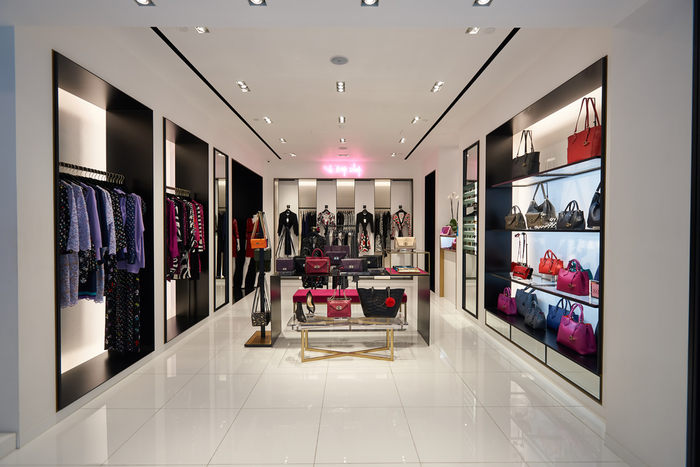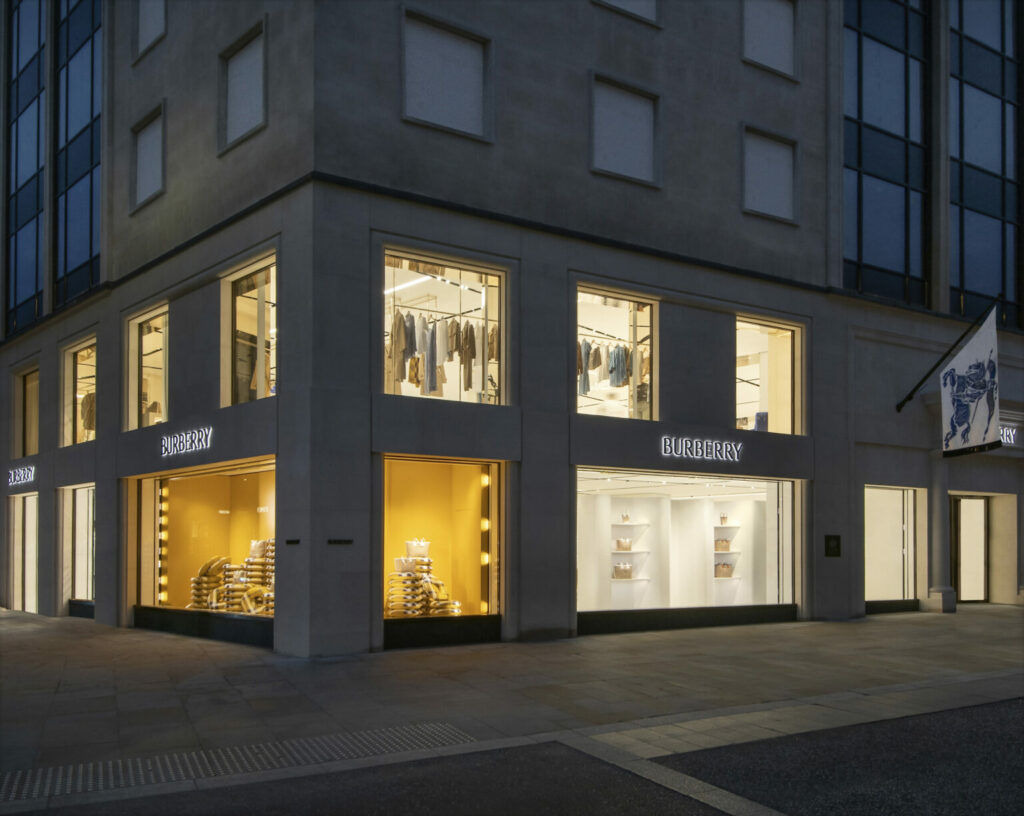When the coronavirus pandemic first struck, retailers everywhere were striving to protect the health and safety of employees and customers.
Luxury retailers were making donations for Covid-19 causes and producing their own hand sanitising gels, while millions were relying on the luxury goods industry to make a living, from factory workers to retail store employees.
Walpole, the trade body for the luxury sector in the UK, found last year that the British luxury sector is worth £48 billion to the UK economy. However, as Covid-19 started to spread globally in January, the value of the FTSE 100 dropped by £44 billion and stock markets around the world experienced a similar fate.
Driving the slump were luxury retail groups, which saw their shares drop amid coronavirus fears affecting their sales – especially in the core market of China where the pandemic started. Luxury groups such as Louis Vuitton Moet Hennessy (LVMH), Hermes and Gucci owner Kering – all reliant on Chinese demand – saw their shares drop.
On a global scale, GlobalWebIndex found that just 15 per cent of 2580 consumers surveyed said they would buy the luxury items they originally wanted at full price, while 40 per cent said they would wait for promotions, and 23 per cent would look for cheaper options from other brands.
The pandemic has since rattled some of the foundational aspects of the luxury industry, and some of these changes may be permanent. The crisis has affected employment in the sector, particularly when Harrods recently said it would make almost 700 redundancies, and Burberry just this morning announced 500 job cuts.

Burberry said around 150 office jobs were expected to go in the UK, where it is headquartered, and a further 350 overseas as it sought to slash annual costs by a further £55 million. It also revealed comparable retail sales had plunged 45 per cent in the three months to June 27 due to coronavirus lockdowns in all of its markets.
Meanwhile, Harrods chief executive Michael Ward said the job cuts would come “in parts of the business that have been most affected by the challenges of lockdown”. The luxury department store, which is reliant on its flagship Knightsbridge store, also recently found a new way to shift its excess stock by opening its first outlet pop-up store in one of London’s Westfield centres to sell all previous-season and surplus stock built up over the lockdown at discount prices.
“Covid-19 has presented the luxury sector with a new set of challenges and opportunities,” Deloitte partner and fashion and luxury lead Kelly Miely told Retail Gazette.
“Retailers have been quickly adapting to a new global environment and changing customer expectations.
“Many fashion houses have innovated the ways they have traditionally interacted with their customers, from virtual showrooms to digital runways, the possibilities we’ve seen are boundless.
“A Deloitte survey found that 57 per cent of respondents plan to invest in innovations such as AI, big data and analytics and the internet of things.
“Combined, these will play an increasingly important role in the market and will help shape new shopping experiences.
“For luxury to return to demand, retailers will need to understand the new normal for consumers, focusing on aligning brands with core consumer values.”

French luxury giant Dior demonstrated its adaptation to changing consumer habits with its recent Nike collaboration.
As both loungewear and casualwear sales rose by 49 per cent year-on-year during March and April – according to interaction management firm Epsilon-Conversant – the Dior and Nike collaboration was a sturdy example of adjusting to demand following the shift in consumer lifestyle.
“With fewer people venturing far from home, Dior is now focusing on buying comfort, shifting spend away from a suit or an expensive bag, and opting for products that fit with their current lifestyle, such as trainers or a set of luxury pyjamas or tracksuit,” said Neil Kuschel, chief executive at tech firm Global-e.
“The pandemic has laid bare the shift towards online shopping.
“Covid-19 presented the luxury sector with a new set of challenges”
“The UK’s online retail sales continued to soar during June, even though non-essential bricks-and-mortar retail began to exit lockdown.
“Although the UK lockdown has largely been lifted, shoppers remain cautious, and we expect that many will be more inclined to shift their permanent shopping habits to online.”
According to the latest Online Retail Index from IMRG and Capgemini, overall online retail sales in June surged 33.9 per cent year-on-year – a new 12-year high since March 2008.
“It has become clear, especially for luxury merchants who have relied heavily on bricks and mortar retail, that a strong ecommerce strategy is therefore crucial for any brand looking to recover from the pandemic,” Kuschel said.
Craig Summers, UK managing director at supply chain solutions firm Manhattan Associates, said the reopening of pubs and restaurants would benefit retail as consumers will combine it with shopping. But Kuschel argued that the reopenings were not likely to drive customers into stores due to the fear of a second wave.
He said luxury retailers should instead focus on capitalising on the accelerating number of global online shoppers. He added that the sector needed to prioritise its online user experience so it runs smoothly as possible – an initiative which could prove challenging considering luxury retailers have long relied on in-store customer experience.
For luxury retail to recover, retailers may need to experiment with ways in which they can turn the whole exercise of going into a store as an experience.
Offerings such as in-store entertainment or a bespoke shopping session could be a way of allowing customers to further discover the brand, and rather than the role of the physical retail being solely to sell, the experience in store could be the gateway to a perfected ecommerce channel.
Click here to sign up to Retail Gazette‘s free daily email newsletter


















